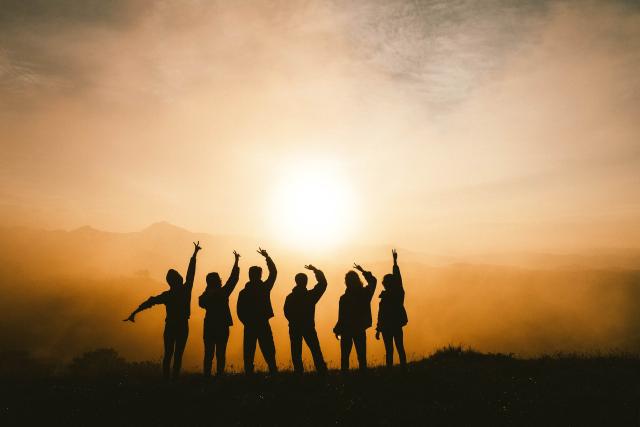Over the past few years, more and more accountability groups have been popping up – some of them coordinated by organisations, others by individuals, with members from one industry, related fields, or a wider spectrum of professions. Four CIEP members have written about the what, where and why of their accountability groups, and show that no two groups are the same.
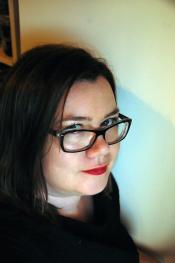 Eleanor Abraham
Eleanor Abraham
Last year, I invited three colleagues to join an accountability group. Why? I felt like I needed to be more ‘out there’ in terms of marketing but it’s scary doing it on your own. I liked the idea of having a small group to share ideas with.
We are all members of bigger groups, and getting invaluable advice from there, but I do like our smaller group. We don’t pressurise or nag. I hope we support and encourage each other… and console when things are tough.
There was no real criteria in asking them other than they are all lovely people, and, while three of us are editors, all four are writers (Shauna would make an excellent editor – hint, hint, Shauna), so we had that in common.
I thought we all had varied enough backgrounds and experience to enable us to share and teach each other some new tricks in publishing, marketing and so on. We usually communicate using Facebook Video. We keep it to one hour a month, and sometimes we have a topic but more often we just have a catch up.
I think I still have a lot to learn about running an accountability group and making the most of it, but we all have busy lives and extra pressure is not something we need. So we’re happy to keep it low-key for now.
I like that we can chat in confidence. It’s good to have other perspectives, but sometimes you don’t want 150 slightly different opinions, but rather the chance to talk things through with people you trust and respect. There are probably more dynamic accountability groups out there, but I do like knowing my colleagues are there and that they will understand and advise on my challenges.
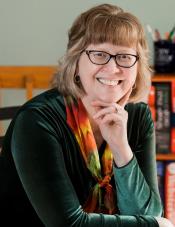 Erin Brenner
Erin Brenner
Since we founded the Quad in 2015, we’ve helped each other in our editing businesses in several ways:
- Ongoing chat thread. We talk about business and daily life.
- Monthly goals check-in. We discuss how our previous month went and our goals for the coming one.
- Occasional goal sprints and virtual retreats. We’ll take anywhere from a half-day to a week to work on individual projects, with periodic check-ins.
- In-person retreats. We set up goals ahead of time, lead training sessions for each other, and work on projects throughout the week. We make time for touring and hosting special-guest dinners.
The purpose of any mastermind group is to grow your business while helping all the other group members grow theirs. You’re creating accountability for each other. And that’s been true for us. We’ll refer each other for work and collaborate on projects. Some of us have even partnered up for new business ventures, and we regularly discuss opportunities to do so.
The biggest thing we get out of the Quad, however, is the friendships. I don’t know if that happens in every mastermind group, because this is the only one I’ve been in. The ongoing chat has meant sharing daily ups and downs, both professional and personal. We cheer for each other, and we cry together. We help one another beyond business, and we love hanging out with each other. One of the struggles of our in-person retreats is making sure we get enough business done in between our play!
Editing as a career has changed enormously in the last 20 years. Employee positions are becoming increasingly hard to find, and finding one where senior editors will mentor you is even harder. More of us are freelancing and working by ourselves. Mastermind groups are a powerful way to keep editors connected and maintain that personal investment in another editor.
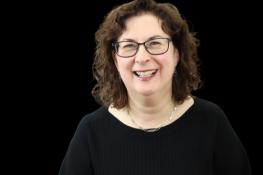 Michelle McFadden
Michelle McFadden
I’ve spent my editing career bouncing between periods of freelance work and in-house employment. I appreciate that I may sound indecisive, but I love both ways of working equally and I am currently in a great in-house position.
One of the things I love about working in-house is the sense of collegiality. The chit-chat about what we all did at the weekend. The availability of another experienced editor to bounce ideas and questions off, not to mention the shared complaints about how the office dishwasher is on the blink – again. And the great sense of achievement we share when we’ve worked together on a massive project and get it over the line just in time. Obviously, working with other editors also means that the memes, gifs and puns are just that little bit funnier.
So how did I find that support and social interaction as a freelancer? I’d like to tell you that it was all part of a carefully constructed plan, but if you know me, you’ll laugh at that idea. I just happened to be fortunate enough to meet two fabulous, clever and chatty women at an SfEP (as it was then) conference. We shared many things including our sense of humour, a love of good food and maybe the odd trip to a spa hotel, too.
We also agreed to form an edibuddy accountability group to encourage each other. We swapped hints on potential jobs and supported each other through dips in confidence. And I honestly don’t think I would have ever completed the PTC training course – the one outstanding thing I needed to be able to upgrade my professional membership – without their encouragement. Life, family, country changes and work responsibilities have pushed their way in, but I will always be grateful for the experience of being part of that small accountability group.
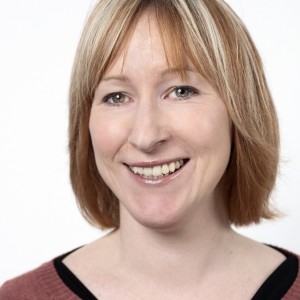 Julia Sandford-Cooke
Julia Sandford-Cooke
What is the collective noun for a group of seven editors who share tips, goals, frustrations, successes, work leads, gossip, laughs and occasional tears? Well, to begin with, we were an accountability group. It all started a few years ago, when I was thrilled to be invited to join a Facebook group of other Advanced Professional Members with whom I was acquainted, to varying degrees, and who were all committed to continuing professional development. Our initial aim was to encourage each other to reach the targets we’d set ourselves – perhaps financial, perhaps subject-specific, perhaps training-related. The idea was to be accountable to the rest of the group for doing what we said we would do. After a few video conferences, I soon found that peer pressure has a particular way of focusing one’s mind.
Our second objective was to gather for a ‘retreat’. Inspired, I think, by a group of veteran North American editors who had blogged about the many benefits of taking time out to reflect on their career, we discussed the practicalities of getting together for a working weekend. Thus, we moved from Facebook to Slack and became the Retreat Group. With members around the country (one, in fact, in a different country), and children and partners to organise, this wasn’t as straightforward as it sounds – but one hot June weekend in 2017, we convened for an amazingly productive series of sessions around a rather posh Airbnb kitchen table, with the overseas member joining us via Skype. Wine, good food and silly games also played their part in cementing us as a unit. A further retreat, and several informal lunch meetings, have followed. We were planning another retreat this year, but dates, venues and stars struggled to align and then COVID-19 popped up – so hopefully 2021.
Having shared our experiences so profitably, we evolved, I suppose into a mastermind group. We’ve become confident about sharing embarrassing skills gaps (shockingly, some of us have never got to grips with macros), difficulties with clients or projects, and even personal issues. Collective wisdom often provides solutions to thorny problems, or at least lends an understanding ear. For me, the overwhelming benefit has been to know that, although I sit alone at my desk, there are others out there ready to listen and offer advice, or even just a stress-relieving chat.
What do you call this group of editors? I call them friends.
If you’d like to build your own accountability group, the CIEP’s forums and local groups are great ways to meet like-minded peers.
Photo credit: Hilltop silhouette – Chang Duong on Unsplash
Proofread by Joanne Heath, Entry-Level Member.
Posted by Abi Saffrey, CIEP blog coordinator.
The views expressed here do not necessarily reflect those of the CIEP.

